Carwan Gallery opens a permanent exhibition space in Beirut
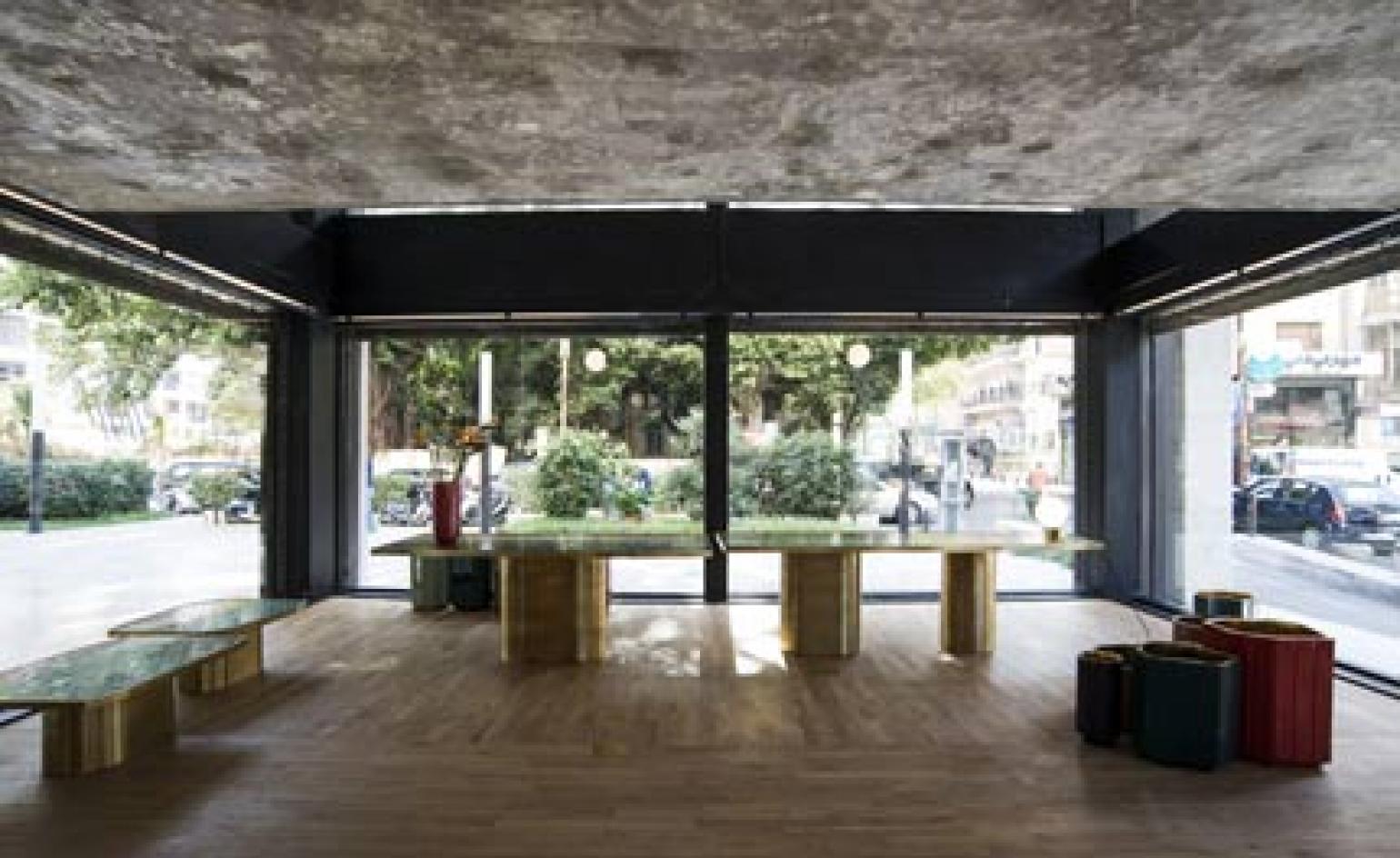
As the saying goes, home is where you hang your hat. After three years hauling temporary exhibitions to design fairs and museums around the world, the pioneering Carwan Gallery has opened a permanent space in its hometown of Beirut. Located in a lofty, industrial space on the ground floor of the city's landmark Gefinor Centre, the bricks-and-mortar location allows its limited edition collection, which often pairs international design talent with Middle Eastern artisans, to be viewed together in one place.
Established by architects Pascale Wakim and Nicolas Lecompte in 2010, Carwan strives to reinvent Middle Eastern craft in a succession of unique contemporary objects. Armed with designs by Michael Anastassiades, Philippe Malouin, Karen Chekerdjian, Studio mischer'traxler and Lindsay Adelman, the gallery inaugurated its permanent space with its latest collaboration with French designer India Mahdavi. The 'Landscape' series, first presented during the gallery's debut appearance at Design Miami/ Basel in June, comprises tables and vases produced by Mahdavi and the Iznik Foundation, who's ateliers are based in Bursa, Turkey. The collection unites Mahdavi's trademark colour and geometrics with the opulent 16th-century Ottoman tradition, a key inspiration.
Having a permanent space doesn't seem to have quelled the gallery's industrious spirit, however. Carwan is also presenting a new collection of works with the imaginative design collective Fabrica, at the National Museum of Beirut. Inspired by a trip the group took to Beirut earlier this year, Fabrica's 'The Secret Collection' reinterprets aspects of Lebanese daily life in unexpected ways. Each object in the eight-piece collection reimagines a traditional craft or technique. Four of the Fabrica products - a desk lamp, pocket mirror, vase and serving tray - will be available to purchase in the museum's shop.
Fabrica's design department director Sam Baron says: 'Our idea [for this project] came about because of the presence of David Raffoul, a young Lebanese designer on the team. He always expressed the great things about his country and so I challenged him to organise a project there for us to discover his land.'
The collective dug deep into Lebanese life to create the pieces. 'We were challenged to absorb the many specifics of the country in order to understand how we could pay modern homage to such a mix of cultures through objects,' Baron explains. 'We didn't want to make too many clichéd references that would make the project like a postcard. '
Continues Baron: 'In the end, the collection reflects the generosity, hospitality and richness of a culture that is such a mélange of religions and habits. There's even a piece that pays homage to electrical blackouts.
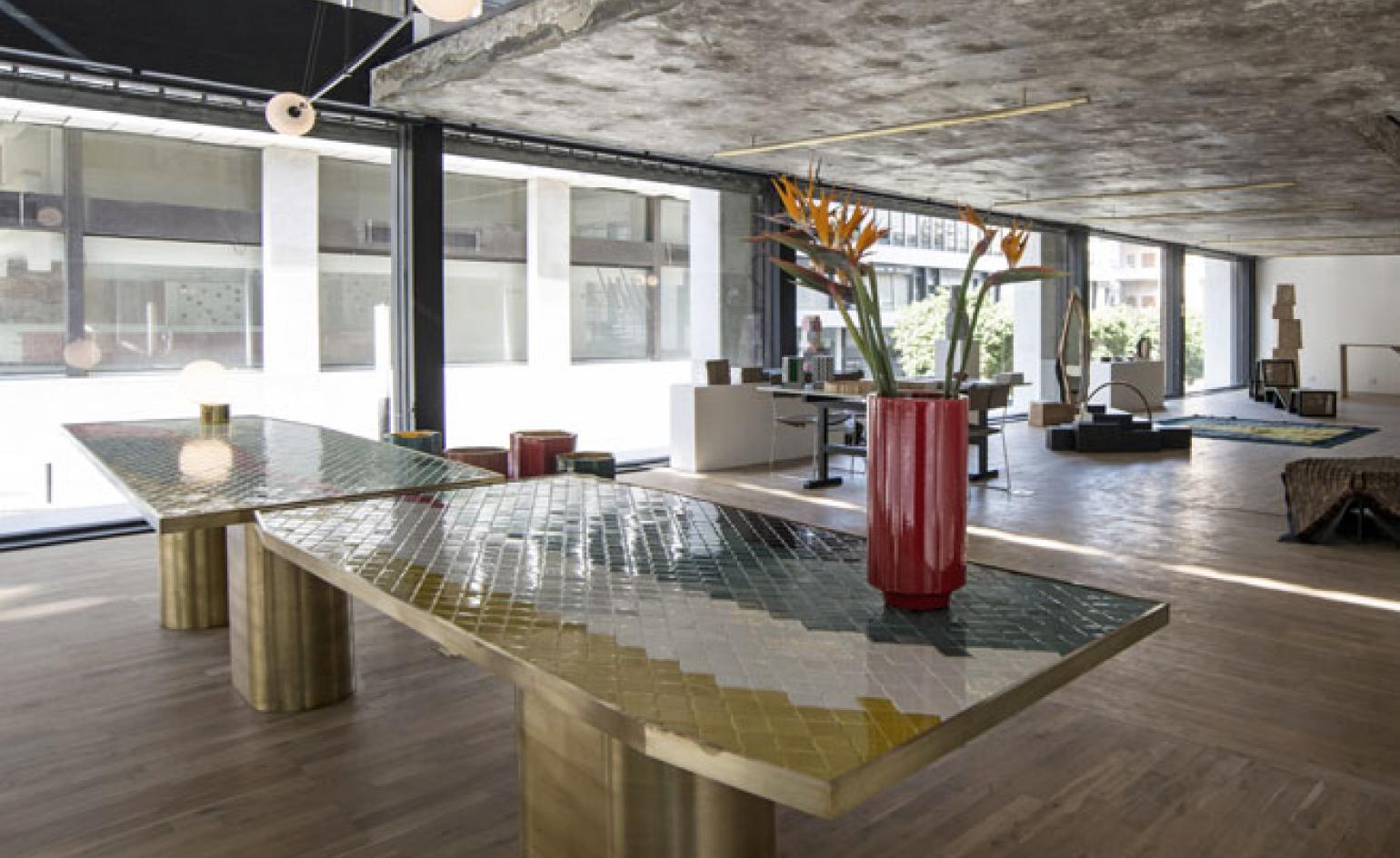
The gallery's inaugural installation features French architect-designer India Mahdavi's 'Landscape Series', comprising tables and vases produced by Mahdavi and the Iznik Foundation in Turkey
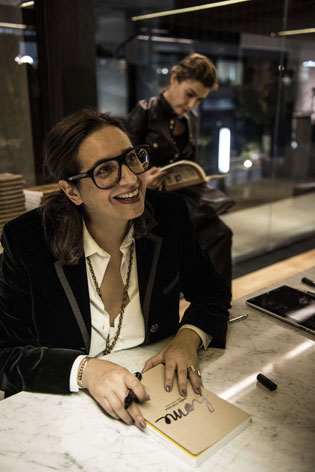
India Mahdavi signs her new book 'Home' at the Carwan Gallery opening
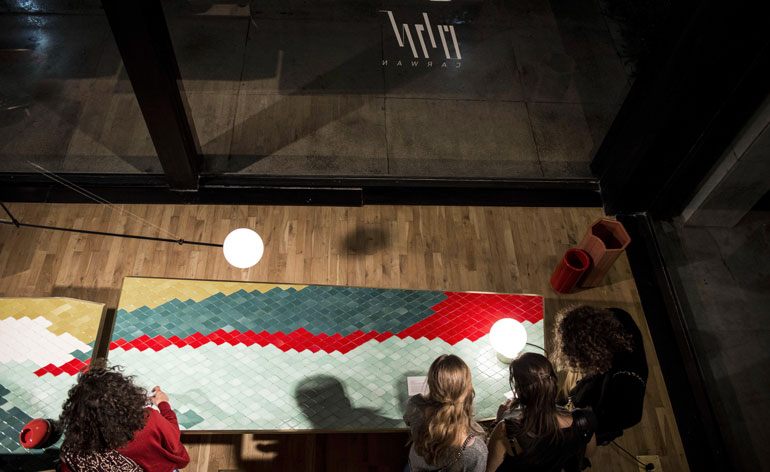
Onlookers gather around one of Madhavi's colourful 'Landscape Series' tables. Above them is a 'Mobile Chandelier' by Michael Anastassiades
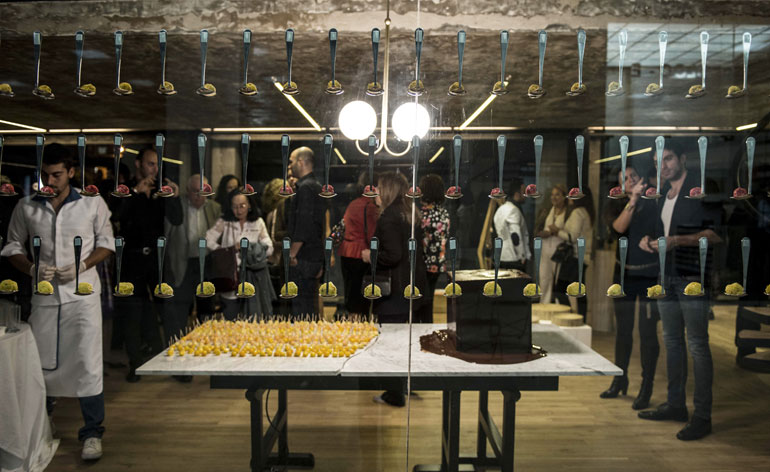
For the opening of their permanent hub, Carwan Gallery commissioned a special food design installation, 'Eat Them', with Chef Charbel El Hachem and Designer Carlo Massoud
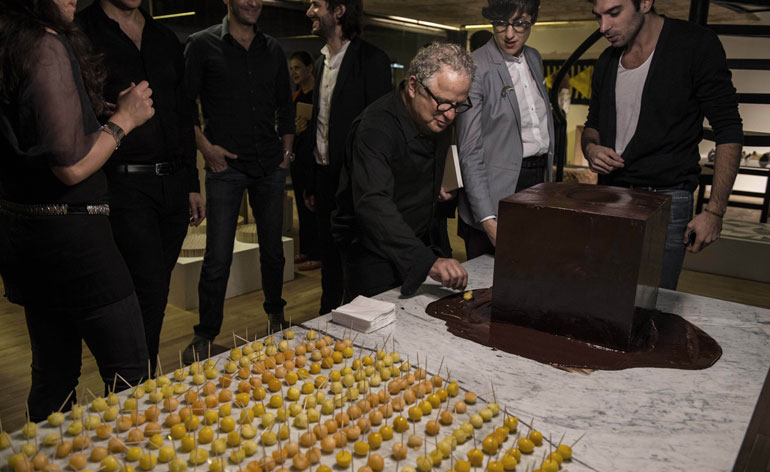
Guests enjoying the edible installation
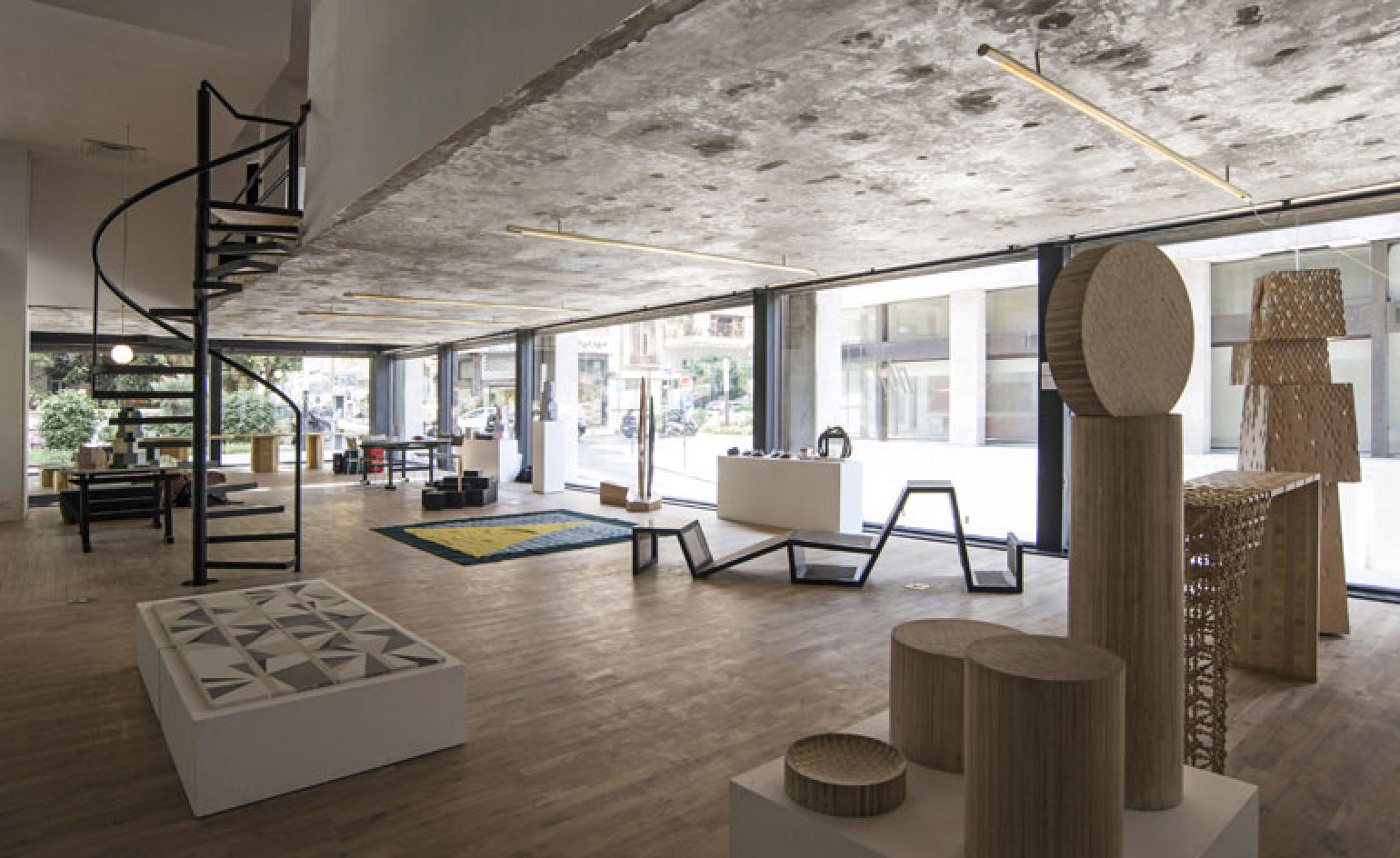
The gallery is also filled with creations by designers Philippe Malouin, Karen Chekerdjian, Studio mischer'traxler and Lindsay Adelman from the last three years
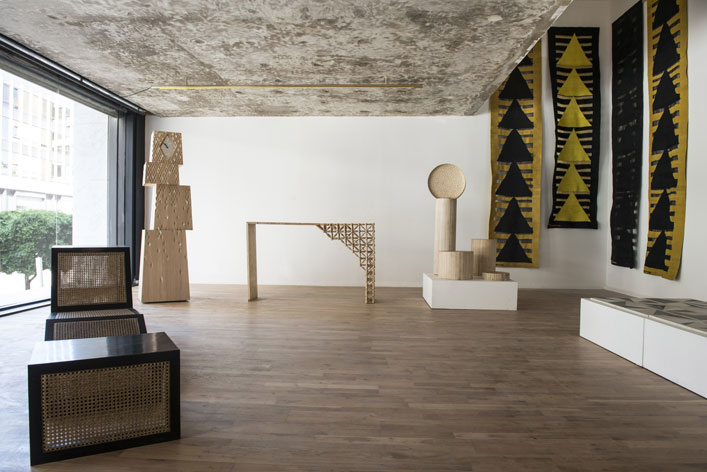
Carwan's current exhibition features (from left) 'Living Space III' by Karen Chekerdjian, 'Fragmented Clock' by Nada Debs, 'Gradient Mashrabiyah Console' by studio mischer'traxler, 'Extrusions Series' of bowls and stools by Philippe Malouin and 'BAZ Kilims' by Taher Asad-Bakhtiari
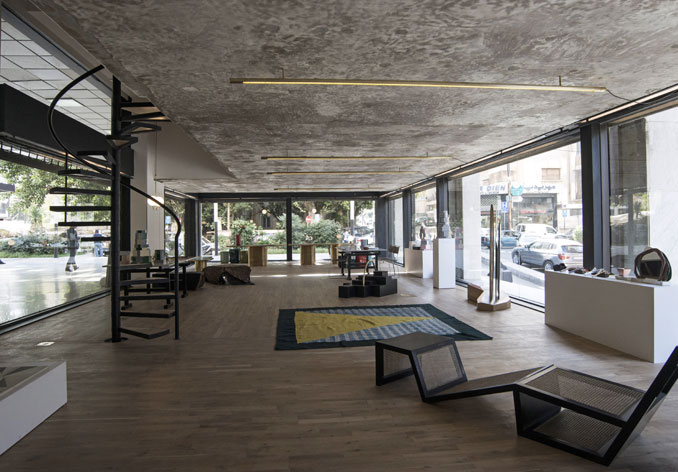
The space is a centre for collaboration, where visitors can explore the relationships designers have with Middle Eastern and more local Lebanese artisans

To coincide with the inauguration of the new space, Carwan Gallery has also teamed up with Italian design collective Fabrica to present 'The Secret Collection', a series of limited edition objects, at the National Museum of Beirut until 10 January. Each of the eight works, including this 'Totem' series, is inspired by the designers' observations of life in Lebanon
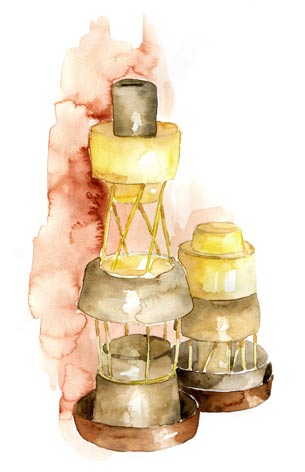
Totem comprises a collection of containers that, when stacked, represent the several reconstructions of Beirut. Executed by Spock Design, Totem combines leather, wood and brass to express the city's complexity by overlapping different layers
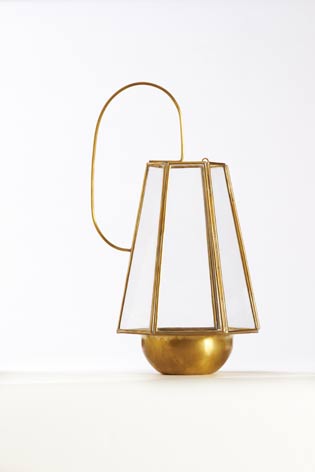
The 'Black-Out' lanterns, developed by Maison Tarazi, pay homage to the city's frequent black-outs
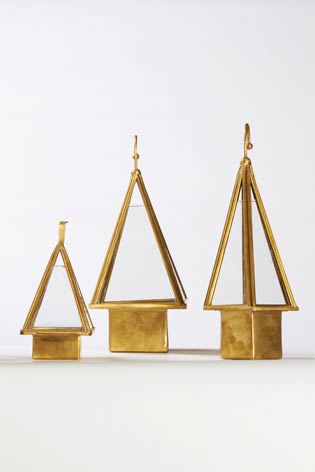
The portable torches reinterpret traditional lanterns
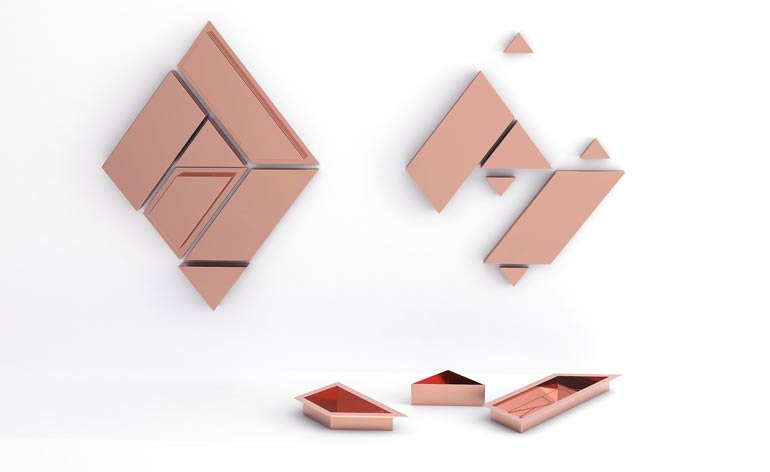
Maison Tarazi also developed 'Yalla', a series of wall plates that highlights the importance of dining in Lebanese culture. The dual-use objects are made from traditional copper with engraved surfaces
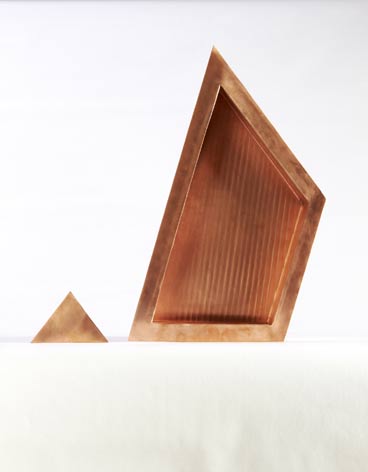
When removed from the wall, Yalla reveals its engraved pattern and its alternative use as a dining plate
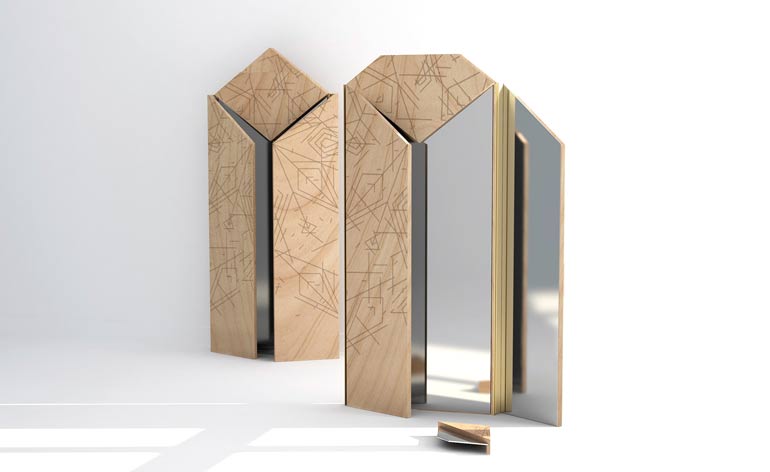
Donna, a self-standing mirror developed by Spock Design, represents the celebration of women in Lebanese society
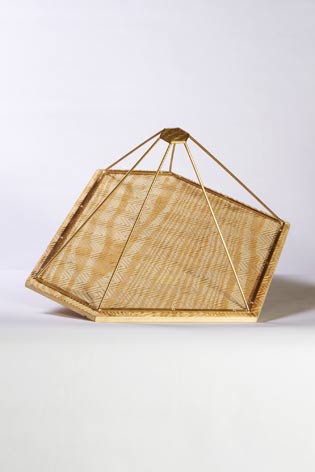
'The Servant' console forces its user to take notice of the engraved detail by zooming in on a small section
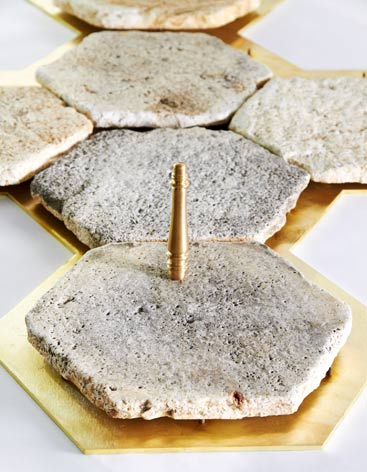
The 'Trace' coat hanger uses rough stone and brass to show the historical and architectural contrasts of Beirut
ADDRESS
Carwan Gallery
L'Ebeniste
Gefinor Center - Bloc E
Clemenceau, Hamra
Beirut
Wallpaper* Newsletter
Receive our daily digest of inspiration, escapism and design stories from around the world direct to your inbox.
Pei-Ru Keh is a former US Editor at Wallpaper*. Born and raised in Singapore, she has been a New Yorker since 2013. Pei-Ru held various titles at Wallpaper* between 2007 and 2023. She reports on design, tech, art, architecture, fashion, beauty and lifestyle happenings in the United States, both in print and digitally. Pei-Ru took a key role in championing diversity and representation within Wallpaper's content pillars, actively seeking out stories that reflect a wide range of perspectives. She lives in Brooklyn with her husband and two children, and is currently learning how to drive.
-
 The Subaru Forester is the definition of unpretentious automotive design
The Subaru Forester is the definition of unpretentious automotive designIt’s not exactly king of the crossovers, but the Subaru Forester e-Boxer is reliable, practical and great for keeping a low profile
By Jonathan Bell
-
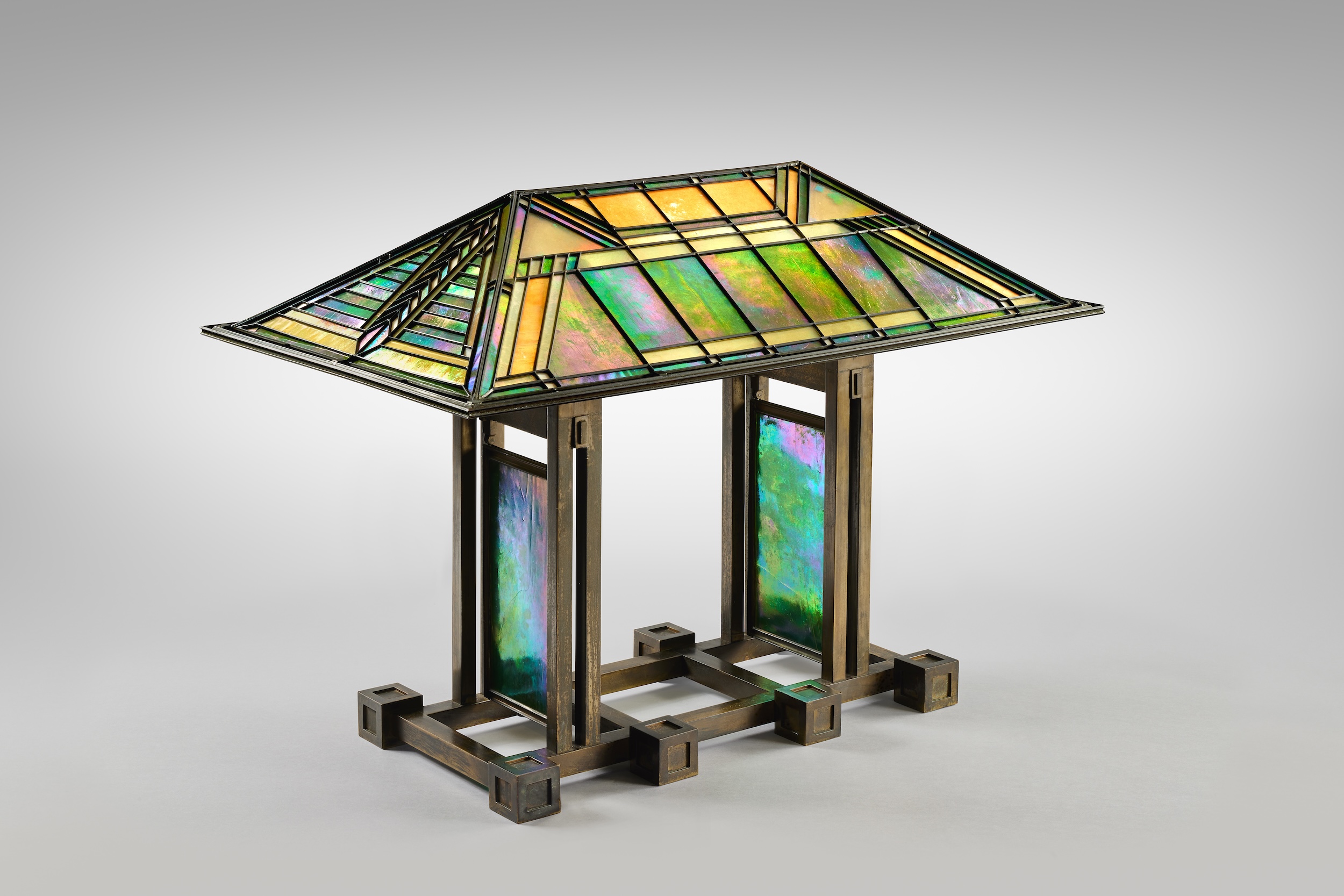 Sotheby’s is auctioning a rare Frank Lloyd Wright lamp – and it could fetch $5 million
Sotheby’s is auctioning a rare Frank Lloyd Wright lamp – and it could fetch $5 millionThe architect's ‘Double-Pedestal’ lamp, which was designed for the Dana House in 1903, is hitting the auction block 13 May at Sotheby's.
By Anna Solomon
-
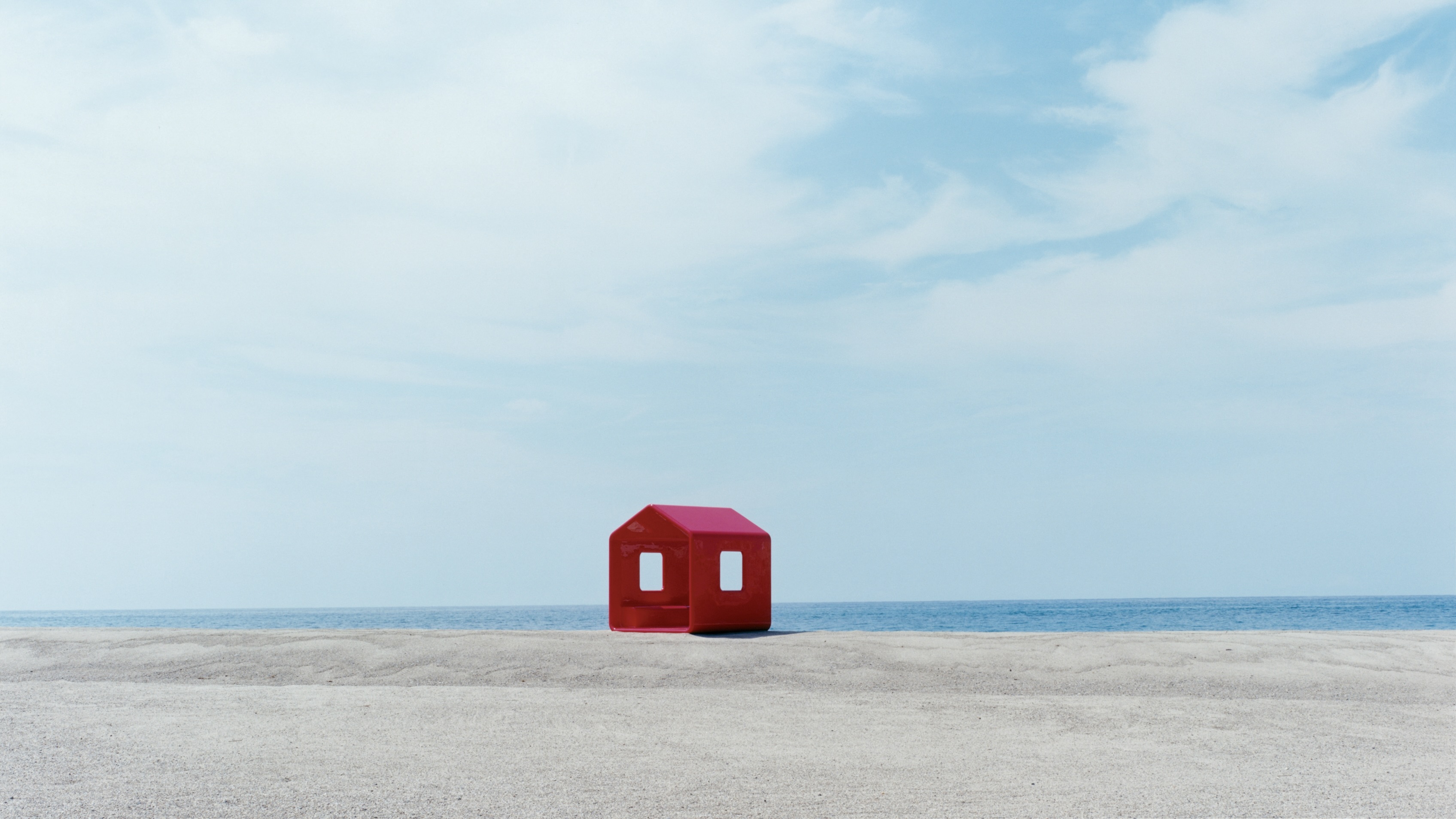 Naoto Fukasawa sparks children’s imaginations with play sculptures
Naoto Fukasawa sparks children’s imaginations with play sculpturesThe Japanese designer creates an intuitive series of bold play sculptures, designed to spark children’s desire to play without thinking
By Danielle Demetriou